Introduction
Pipeline corrosion poses a significant threat to the oil and gas industry. It can lead to leaks, spills, and catastrophic failures, causing not only financial losses but also environmental damage and potential safety hazards. To combat this, the industry employs various methods, among which corrosion coupons play a crucial role.
Corrosion coupons are small, standardized pieces of metal that match the material of a pipeline. Technicians install these coupons directly inside the pipeline, where they are exposed to the same conditions as the pipeline itself. Over time, these coupons accumulate rust and degradation, just like the pipeline would, serving as an early warning system.
The significance of corrosion coupons lies in their simplicity and effectiveness. They provide a direct, measurable way to assess the rate and type of corrosion occurring within a pipeline. This data allows engineers to make informed decisions about maintenance, repairs, and when to replace parts of the pipeline.
Moreover, using corrosion coupons helps ensure compliance with industry safety standards and environmental regulations. They are a low-tech yet reliable method that supports the ongoing efforts to maintain pipeline integrity and prevent failures. This proactive approach is essential for the long-term success and sustainability of pipeline operations.
Selection Model of Corrosion Coupon
| Model | |||||||||||||
| CC | Corrosion Coupons | ||||||||||||
| -Code | Plug Body Assembly | ||||||||||||
| Pxxx | Type | Material | Sealing Material | ||||||||||
| 0 | No Request | 0 | CS | 0 | No Request | ||||||||
| 1 | Hollow Plug Body | 1 | 316SS | 1 | Viton O-Ring / PTFE Primary Packing | ||||||||
| 2 | Solid Plug Body | 2 | 316LSS | 2 | HNBR | ||||||||
| 3 | DUPLEX SS | ||||||||||||
| 4 | INCONEL | ||||||||||||
| Type of Coupon Holder | |||||||||||||
| SR | Fixed Coupon Holder for assembling rectangular coupon | ||||||||||||
| AR | Adjustable Coupon Holder for assembling rectangular coupon | ||||||||||||
| LR | Ladder Coupon Holder for assembling rectangular coupon | ||||||||||||
| SC | Fixed Coupon Holder for assembling circular coupon | ||||||||||||
| AC | Adjustable Coupon Holder for assembling circular coupon | ||||||||||||
| -Pipe Size | |||||||||||||
| x | Pipe Size in inch | ||||||||||||
| – Coupon Size | |||||||||||||
| A×B×C | Coupon Size in inch or mm | ||||||||||||
| – Coupon Material | |||||||||||||
| x | Grade | ||||||||||||
| -Finishing of Coupon | |||||||||||||
| 0 | Mill | ||||||||||||
| 1 | Glass Bead | ||||||||||||
| – Isolation Gasket | |||||||||||||
| 0 | No Gasket | ||||||||||||
| 1 | Nylon Gasket | ||||||||||||
| 2 | FTFE Gasket | ||||||||||||
| For Example CC-P221-SR-6″-3″×1/2″×1/8″-MS1018-0-2 CC: Corrosion Coupon | |||||||||||||
| P221: Solid Plug Body in 316LSS Viton O-Ring and PTFE Primary Packing | |||||||||||||
| SR-6″:Fixed Coupon Holder for assembling rectangular coupons and for 6″pipe | |||||||||||||
| 3″×1/2″×1/8″: Coupon Size MS1018: Coupon Material | |||||||||||||
| 0: Finishing of Coupon is Mill 2: Material of Isolation Gasket is PTFE | |||||||||||||
Specifications
| Material | Stainless Steel 304、Stainless Steel 316、DSS F51、Carbon Steel A105N、Inconel 625 |
| Operating Temperature | -20±120 |
| Feature | Firstly, Easy to Operating |
| Secondly, High Accuracy Long Life | |
| At last, High Efficiency, Low cost | |
| Payment | TT/LC |
| Advantage | Firstly, they are lightweight and flexible. |
| Secondly, Nice Injection efficiency. | |
| At last, Accurate location tracking. |
Understanding Corrosion in Pipelines
Corrosion in pipelines refers to the gradual deterioration of metal caused by chemical reactions with its environment. This natural process can significantly compromise the structural integrity and safety of a pipeline.
Several types of corrosion commonly affect pipelines. Uniform corrosion attacks the metal surface evenly while pitting corrosion creates small, deep holes in the metal. Galvanic corrosion occurs when two different metals are in contact in a corrosive environment, causing one to corrode faster than the other.
Various factors contribute to the rate and severity of corrosion in pipelines. Environmental influences like humidity, temperature, and soil composition play significant roles. For instance, high humidity levels accelerate rust formation, while certain soil types can be more corrosive to specific metals.
The properties of the material used for the pipeline also dictate its susceptibility to corrosion. Metals like steel, although strong, are prone to rust in the presence of moisture and oxygen.
Lastly, chemical interactions between the pipeline material and substances flowing inside or surrounding it can accelerate corrosion. For example, the presence of acids or salts, either in the medium transported or from external sources, can speed up the corrosion process.
By understanding these factors, industries can better predict and mitigate corrosion risks, ensuring the longevity and safety of their pipeline infrastructure.
What Are Corrosion Coupons?
Corrosion coupons are small, standardized samples of metal placed directly inside pipelines or industrial systems. These metal pieces are identical to the material of the main pipeline. Their primary job is to mimic the corrosion process that occurs in the pipeline itself, offering a snapshot of the corrosive activities happening within.
The basic concept of a corrosion coupon is straightforward: expose the coupon to the same conditions as the pipeline for a set period. After this exposure, technicians remove and analyze the coupon to measure the extent of corrosion. This analysis helps predict the remaining lifespan of the pipeline and determine the effectiveness of any corrosion protection in place.
The use of corrosion coupons dates back several decades. Initially, industries that handled corrosive substances on a large scale, like oil and gas, adopted corrosion coupons to monitor and extend the life of their infrastructure. Over the years, the practice has evolved. Today, it includes advanced analytical techniques for better accuracy and predictive capabilities.
Moreover, as industries have grown more safety-conscious and regulatory requirements have become stricter, the role of corrosion coupons has expanded. They are now a critical component in the maintenance strategies of various sectors, ensuring that pipelines operate safely and efficiently. This historical evolution highlights the enduring relevance and adaptability of corrosion coupons in industrial safety management.
Types of Corrosion Coupons
Corrosion coupons come in various shapes and designs, each tailored to specific testing needs and pipeline environments. Here’s a simple introduction to some of the most common types:
Strip Coupons
Strip coupons are long, narrow pieces of metal. They are the most commonly used type due to their simplicity and the large surface area they offer for inspection. Technicians attach these strips inside the pipeline, where they directly exposed to the corrosive environment, making them ideal for general corrosion monitoring.
Disc Coupons
Disc coupons are circular and relatively small, making them easier to install in tight spaces. Their shape allows for uniform exposure to corrosive elements, which is useful for detailed analysis of localized corrosion. They are often used in systems where space constraints prevent the use of larger coupons.
Cylindrical Coupons
Cylindrical coupons are rod-shaped and designed to mimic the pipeline’s interior conditions more closely. They provide a 360-degree exposure area, which is beneficial for studying corrosion that may occur uniformly around the pipeline. This type is particularly useful in flow systems where the direction and speed of the fluid might affect corrosion patterns.
Flush-Mounted Coupons
Flush-mounted coupons are designed to be installed flush with the inner wall of the pipeline, minimizing disruption to fluid flow. They are particularly valuable in high-pressure systems where protruding coupons might cause turbulence or be prone to mechanical damage. These coupons offer a more integrated approach to monitoring by replicating the actual wall conditions of the pipeline.
Materials Used in Corrosion Coupon For Pipeline
Common materials and their properties
- Carbon steel
- Stainless steel
- Copper
- Aluminum alloys
These are common materials used by corrosion coupons. If you have any other needs, contact our EMT team, and we will give you the best solution.


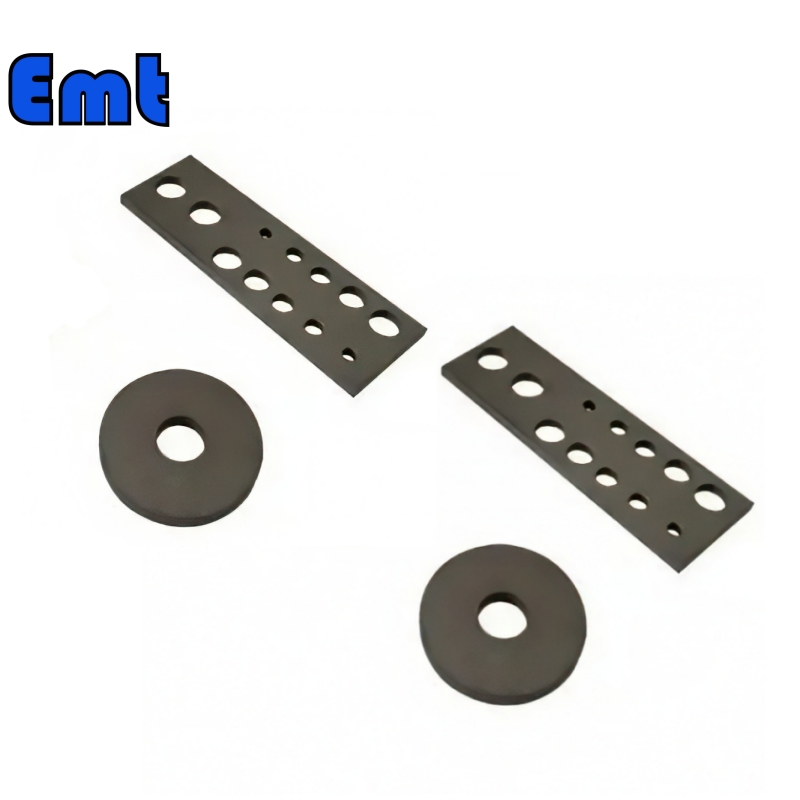
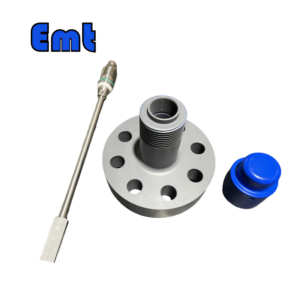
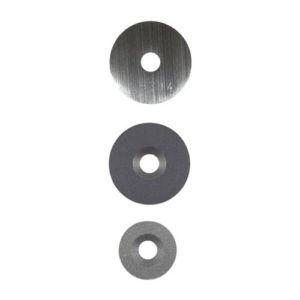
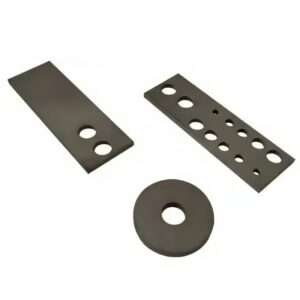
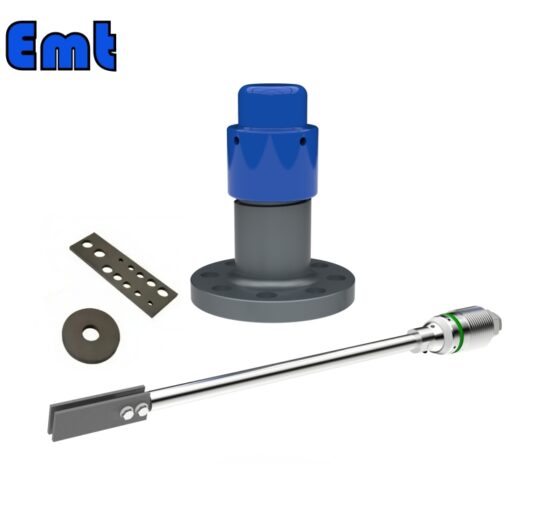
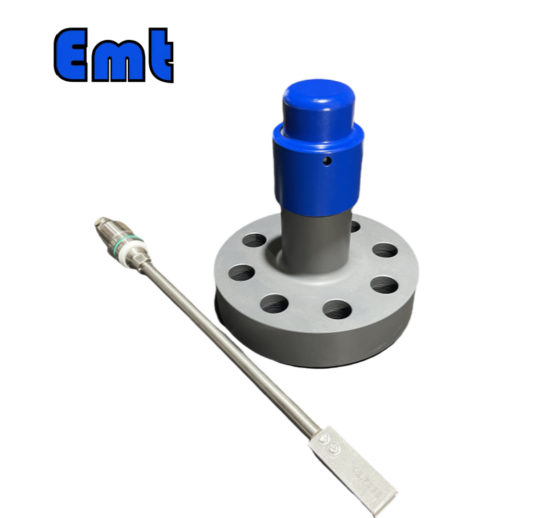
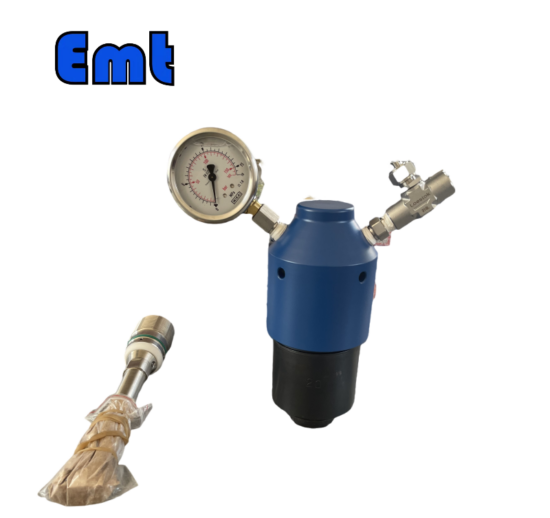
There are no reviews yet.